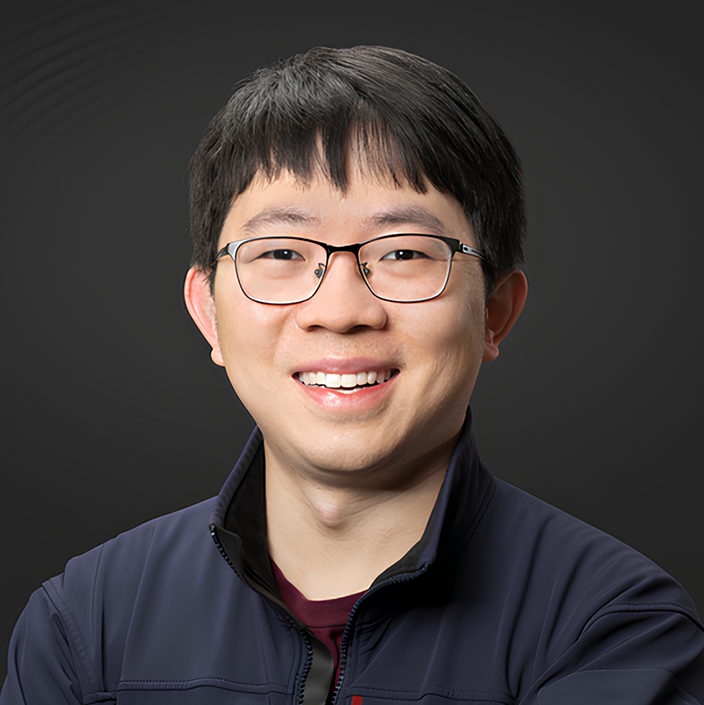UC San Diego’s Machine Learning Initiative Aims to Advance AI Systems
Story by:
Media contact:
Published Date
Story by:
Media contact:
Share This:
Article Content
Data scientists and computer scientists at the University of California San Diego are launching a new initiative to advance next-generation machine learning systems and develop innovative algorithms. Some of their research has already been included in the groundbreaking DeepSeek Large Language Model, which is upending our understanding of how to scale up and train these models.
The MLSys Initiative is led by a group of researchers at the intersection of machine learning and systems at UC San Diego’s Halıcıoğlu Data Science Institute (HDSI), within the School of Computing, Information and Data Sciences (SCIDS), and with support from the Department of Computer Science and Engineering.

“The MLSys Initiative is like the behind-the-scenes crew in a blockbuster movie,” said Hao Zhang, an assistant professor at HDSI. “While AI models are the stars, our focus is on the infrastructure—ensuring these models run smoothly, efficiently and at scale.”
Zhang, a co-founder of the initiative, leads the new course CSE 234 / DSC 291: Machine Learning Systems and oversees activities related to the MLSys Initiative cohort, which consists of nine faculty and more than 30 graduate students. The group’s research areas include hardware and software co-design for ML and AI, ML and AI systems benchmarks and datasets, AI systems for science and more.
According to Zhang, MLSys combines ML with systems design. In other words, it teaches machines to learn patterns while ensuring hardware and software operate smoothly, accurately and at scale. Zhang and the cohort are exploring ways to make AI models work faster and process data more efficiently using less energy.
“Think about ChatGPT, autonomous driving cars (e.g., FSD in a Tesla), YouTube video recommendations and any AI tools you use today,” Zhang explained. “MLSys is basically the engine running behind these models, tools and user experiences. It ensures these tools run efficiently, cheaply or freely (in the near future) and accurately.”
Launched in the summer of 2024 and supported by HDSI under the advice of SCIDS Interim Dean Rajesh Gupta—who is also the founding director of HDSI—the initiative has quickly garnered attention from the UC San Diego community and professionals in the field thanks to its goals and research. Students and faculty expressed immediate interest, with over 300 requests to enroll in the new course, underscoring the community’s excitement and the initiative's importance.
In September 2024, the group’s paper, “DistServe: Disaggregating Prefill and Decoding for Goodput-optimized Large Language Model Serving,” highlighted new advancements in optimizing large language model serving. This work, led by the group, introduced the innovative concept of prefill-decode disaggregation. This technique has since been widely adopted across the field, including in renowned systems like the DeepSeek-v3 serving pipeline. By separating prefill and decoding stages, the approach enables more efficient utilization of resources and has set a new benchmark for goodput optimization in large-scale AI deployments.
In addition, the group’s contributions to software engineering were described in another paper, “Multi-modal Learning for WebAssembly Reverse Engineering.” This paper was selected as one of 11 (out of 143) papers to receive an ACM SIGSOFT Distinguished Paper Award at the 2024 International Symposium on Software Testing and Analysis (ISSTA). The ACM Special Interest Group on Software Engineering provides a forum for computing professionals from industry, government, and academia to examine principles, practices, and new research results in software engineering.
While the project is just starting, the initiative plans to expand collaborations and grow its reach in training the next generation of researchers and engineers.
“MLSys is just the beginning—there’s immense potential to expand collaborations, build industry partnerships and train the next generation of researchers and engineers to redefine AI systems,” said Zhang.
For more information about the MLSys Initiative at UC San Diego, please visit the website.
Learn more about research and education at UC San Diego in: Artificial Intelligence
Share This:
Stay in the Know
Keep up with all the latest from UC San Diego. Subscribe to the newsletter today.



